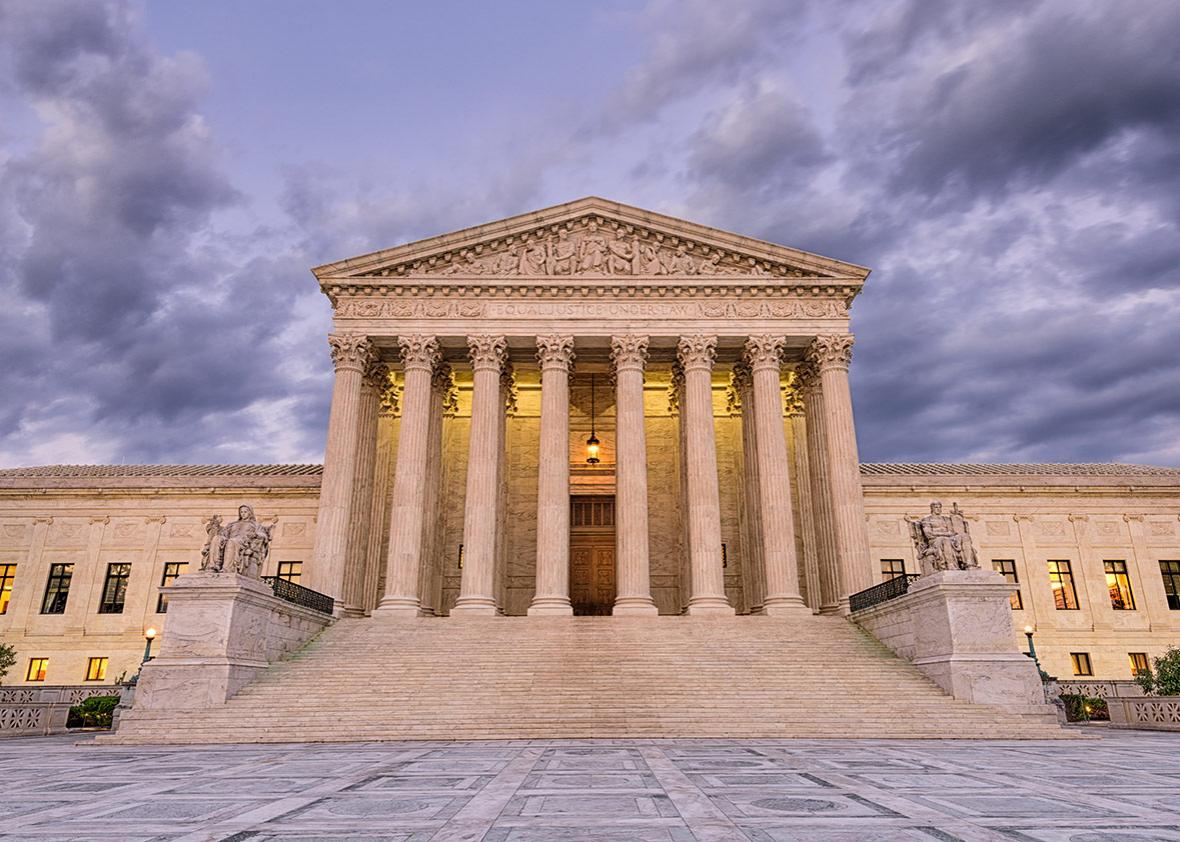Late last month, the Supreme Court announced that it would hear Janus v. AFSCME, a case that challenges public-sector unions’ right to collect fees from nonmembers. Such “fair share” fees have been a legal bedrock of labor unions since the Supreme Court’s 1977 ruling in Abood v. Detroit Board of Education. In Abood, the court held that unions could lawfully charge fees to non–union members to help offset the costs of “collective bargaining, contract administration, and grievance adjustment” from which all employees benefit, as long as the union does not use such fees for political purposes.
Critical to any discussion of Janus is the fact that federal law also compels unions to advocate on behalf of non–union members. Thus, overturning Abood would immediately incentivize free-riding, thereby threatening public-sector unions’ very existence. If the court overturns Abood as anticipated, though, unions should immediately challenge their obligation to represent free-riding nonmembers as a violation of their own rights under the First Amendment. And they should win.
The plaintiff in Janus—a child-support worker in the Illinois Department of Healthcare and Family Services—contends that all public-sector union activities are inherently political. Thus, he argues, the fair share arrangement contemplated by Abood must be overturned, because forcing him to subsidize political causes with which he disagrees violates his First Amendment rights.
But the notion that unions must advocate on behalf of non–union members like Mark Janus at all actually violates unions’ First Amendment right to freedom of association. Forcing unions to advocate on behalf of nonmembers for free, however—as the court is poised to do—would be comically unconstitutional. As a result, if Abood is overturned and fair share fees fall by the wayside, then the federal mandate compelling unions to bargain on behalf of nonmembers must fall along with them.
The National Labor Relations Board describes non–union members’ “right to fair representation” from unions as follows:
Your union has the duty to represent all employees—whether members of the union or not—fairly, in good faith, and without discrimination. This duty applies to virtually every action that a union may take in dealing with an employer as your representative, including collective bargaining, handling grievances, and operating exclusive hiring halls. For example, a union which represents you cannot refuse to process a grievance because you have criticized union officials or because you are not a member of the union.
As professors Catherine Fisk and Margaux Poueymirou have persuasively argued, though, if the Supreme Court holds that compulsory fair share fees are unconstitutional because they require non–union members to spend money on political causes with which they disagree, then compelling unions to expend their own scarce resources advocating for the benefit of nonmembers would similarly be unconstitutional “on the court’s own analysis.”
But the violation of unions’ First Amendment rights is more severe than merely compelling them to spend money. In addition to depleting unions’ resources, compelling unions to advocate on behalf of nonmembers who frequently oppose their very existence represents a severe violation of unions’ First Amendment rights to determine their membership and the terms of their association.
The Supreme Court has held over and over again that governmental interference with a private group’s membership requirements “may impair the ability of the original members to express only those views that brought them together.” Given this reality, the court has long recognized that “[f]reedom of association therefore plainly presupposes a freedom not to associate.” The Supreme Court expounded on this principle in a landmark 2000 ruling, which held that the Boy Scouts of America had the right to expel a gay member, lest the organization lose its “ability to advocate public or private viewpoints.”
In other contexts, allowing the government to force organizations to advocate on behalf of people who oppose them would lead to results that most would properly regard as absurd. For instance, what would be left of the right to associate if the government could compel Republicans to allow Democrats to vote in their nominating conventions? Or force the Jewish Anti-Defamation League to promote the views of Nazis? Can civil rights advocates be compelled to permit the KKK to march with their members at parades, or vice versa? Simply put: Individuals are either free to define the terms of their association, or they are not.
Typically, the notion that the First Amendment’s guarantee of freedom of association also protects the negative right not to associate would be uncontroversial, given that courts have consistently held that the First Amendment protects its provisions’ negative corollaries. For example, decades of precedent reveal that the First Amendment protects with equal force both the right to speak freely and the right not to speak, the right of the press to publish and not to publish, a citizen’s right to vote and not to vote, and an individual’s right to practice a religion or to abstain from religious practice entirely.
Consequently, given the essential underpinnings of the right not to associate, must unions advocate on behalf of unwelcome nonmembers who don’t share the union’s views and don’t pay for its services? Based on a straightforward application of the First Amendment’s freedom of association jurisprudence, the answer should be “of course not.” However, when it comes to unions—whose First Amendment rights have never been placed on equal footing with their corporate counterparts—the answer is somehow “yes—by government fiat.” This obligation is constitutionally impermissible, and after Janus, it is also likely to become monetarily unsustainable.
If requiring non–union members to pay fair share fees violates the First Amendment, then obligating unions both to represent nonmembers and to do so free of charge violates the First Amendment in spades. Unions ought to have the very same right to exclude nonmembers and define the terms of their association as any other organization. Further, regardless of the court’s ruling in Janus, the Constitution does not guarantee anyone the right to a free ride.
